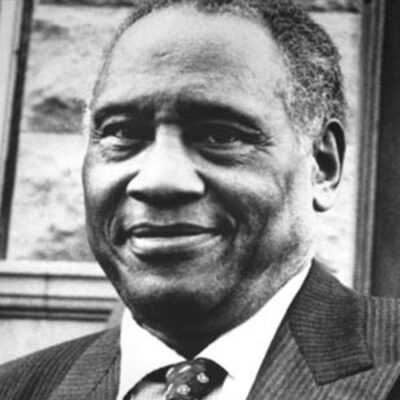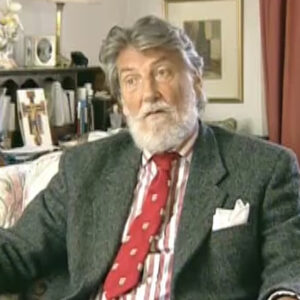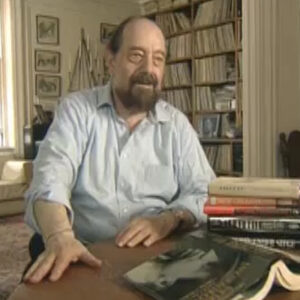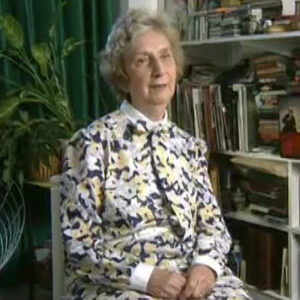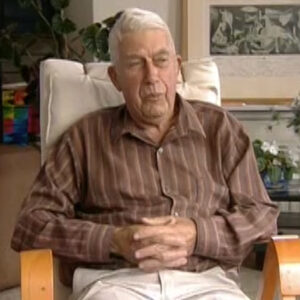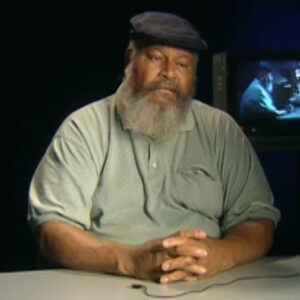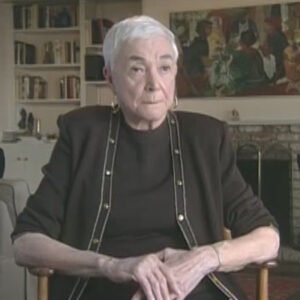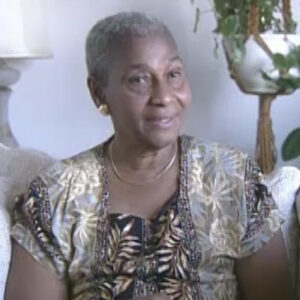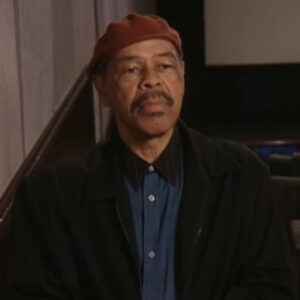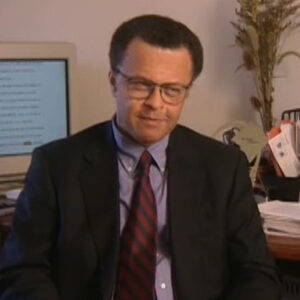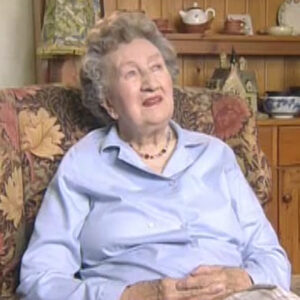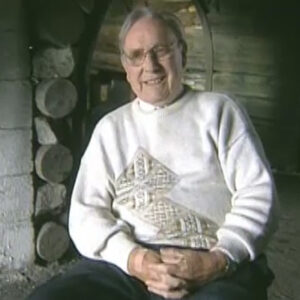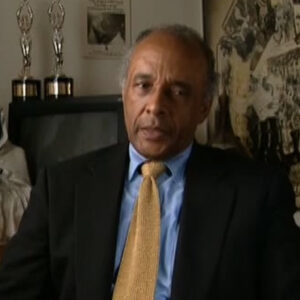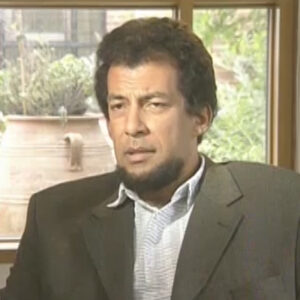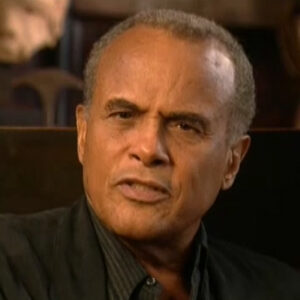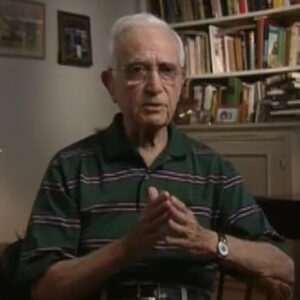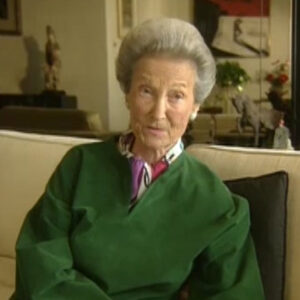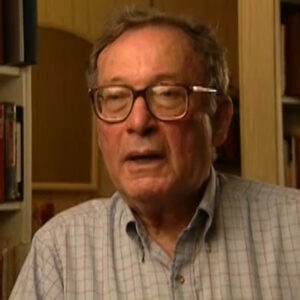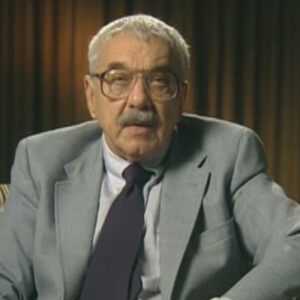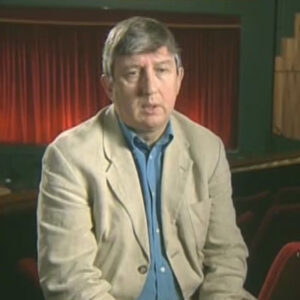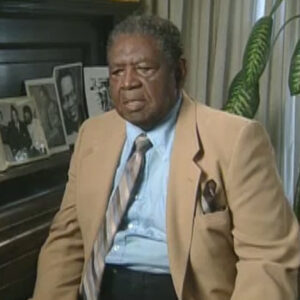Speaker When I saw my first lynching, I became a political activist. I just knew that it was necessary to do something to change things.
Speaker Mm hmm.
Speaker Um, when was the first time you heard not heard but heard about Paul Robeson?
Speaker Well, I had known about him in the South. He was a hero. And I came here and the Nicholas brothers were friendly with him. They had known him in Europe and they knew him when he came out here for concerts, etc.. In those days, people in show business mingled with each other. There was a close bond between all the people who worked on the stage and and in movies. And so it was a natural thing. They preferred the company of each other.
Speaker So now was Paul, Paul was considered a I’m assuming he was considered a high class performer.
Speaker Absolutely. Concert.
Speaker What was the reaction? I mean, from your perception, what did the SHOWBIZ folks think of his political activity?
Speaker Well, some of them had admired it. There were a few of them who joined him, very few. But I remember June Richmond was a great singer who later went to Europe, lexigram Canada.
Speaker Three people in that category all admired him very much and would sit around after concerts and discuss all the problems of the day.
Speaker And there were many that say so. So when was the first time you actually met him?
Speaker I think I first met him when he was.
Speaker Playing Otello and went backstage, and from then on, we became friends.
Speaker Now.
Speaker You said that there were many problems they used to talk about the political problems of the day, right. And there were many what was some of the things?
Speaker Some of the problems were there was a lady by the name of Charlotte Abess who owned the California Eagle, and she was in financial trouble, always having to get her paper out of the press, paying for it each year, each week. And there were two of us, Dorothy Dandridge, my sister-in-law.
Speaker Now they’re playing again. Freeze.
Speaker I mean, like we said, and then we got to live with it. OK, OK.
Speaker So some of the issues of the day were having Mrs. Charlotte Abbas stay in business. And Dorothy Dandridge, Jean Sironi and Jerry Branton used to get her paper out of Harkey each week and it ran about 900 dollars each week. And we would split the money and pay it to the press so that we could get her paper out. And it was essential. Her paper directed us to jobs, real estate, businesses, etc., and all the political happenings, who was running, what chances we had, etc., etc..
Speaker There were very few elected officials and it was our only means of advertising and having people run for office.
Speaker Did they do interviews with Paul when they came out? Always.
Speaker I’m sorry, but she admired Paul and he would do big benefits for her paper. We had one benefit over at Wrigley Field and he crowded that place. He drew more people than the president.
Speaker Was the was was he a big hero primarily to the end when he first got here in the.
Speaker Is right, right. OK. Was he a big hero to just the black community or was he?
Speaker Well, you know, he was he was a respected and admired by every segment of society. And it was not until the FBI started coming around, it threatened people’s jobs. And they wouldn’t they wouldn’t go to a concert, I remember once had a hoppa.
Speaker Who was a vicious columnist wrote that anyone who would go to a Paul Robeson concert in those days, he would sing at the Hollywood Bowl and everywhere, and she said anyone who would go to Paul Robeson concert was a communist if they applauded.
Speaker And this was in the 40s. Yes, this must have been during the Cold War, I guess it was the beginning and.
Speaker We had John Garfield and a lot of.
Speaker Wonderful people who would go to a concert and we had a place called the Actors Lab, and they they produce the Stanislavski movement and method and Anthony Quinn was one of the big stars, etc. And in order to keep the school running, we gave a big benefit and had closed off the streets and they had dancing in the streets.
Speaker And Anthony Quinn and a few other actors danced with Dorothy Dandridge and he had a hyper.
Speaker Had this integration, just couldn’t go on, so she put the actors lab on a list. And that it was communist inspired and so on because of the method that they use, teaching, acting so. A lot of people dropped out of school. Marilyn Monroe was one of the actors attending. And the man who played Sam Slade also and there were several women who were marvelous actors, actresses, and she castigated them for going to the actor’s laugh, so did they. But Paul, I’m assuming, would come and do a benefit or support them in any way that he could have said.
Speaker The give me a sense of.
Speaker How Paul related to people one to one, I mean, you knew him personally.
Speaker Well, Paul, I’m sorry you didn’t have the experience would come into a room with 300 people and they would probably murder you because they would tell you he was talking just to them, each one they had that way of.
Speaker Of communicating.
Speaker That he was just talking to you, you were sure you now he was an actor, so he had a certain skill, right?
Speaker Right. But he was naturally charismatic.
Speaker How much political work that you do out here, I mean, was he well in supporting and supporting the various causes and benefits and committees and doing benefits for a lot of bass over Wrigley Field, helping the actors live? There was a we had a committee then called the Hollywood Democratic Committee and all the big actors.
Speaker Oh, that’s OK. If you can start over, please. I’m sorry.
Speaker You can start imagining some of the things of helping all the things that he did, all the benefits, all the committees, any liberal committee that was going to help people get jobs.
Speaker He did a lot to help Roosevelt, who managed his own campaign in those days here in Michigan. Douglass, people like that.
Speaker He was just he was just good about that, he was good about talking to the various committees and helping us direct our efforts.
Speaker Now, back east, people are pretty much familiar with. You know, the progressive community. Mm hmm. What was it like out here, let’s say, during the fall?
Speaker It was campy, not not too skimpy. Not to too many people were jumping on the bandwagon. We had the vicious. Pre McCarthy era Jack Kennedy committee. And they used to engage anyone that they considered to left wing column before the committee and give them a bad time and threaten them.
Speaker So how does that affect the progressive community out here?
Speaker It scared them to death. And they formed the blacklist, actors couldn’t work. And Canada, we. Was absolutely distraught.
Speaker Now, did Paul ever talk about his thoughts about being in the movies out here?
Speaker Oh, yes. What did he say?
Speaker Well. First of all, he resented the Uncle Tom Rose. And he always tried to uplift and upgrade the pictures and the parts, but for everyone, he hated the business of dialect and maids and butlers and buffoons.
Speaker And there was there was some very nice people in the community. For instance, Ben Carter, who was a Mantan Moore, was always a buffoon. He’d get scared and his hair would stand straight and and he was an Uncle Tom.
Speaker Yet, on the other hand, he was a great Shakespearean actor. Very, very intelligent and politically motivated.
Speaker For instance, we got through an ordinance that said if you refuse to serve a black person in a restaurant.
Speaker That you’d have to pay 100 hundred dollars. So. We were lucky enough to have a limousine stretched Chrysler that Harold and Faade traveled from place to place and they had a chauffeur and so on. So Ben Carter would come to my house and we’d go out and watch and pick up a lot of black children and put them in our Chrysler.
Speaker And we could carry about 11 kids. So we would go out to a restaurant that was close to the the studios that we knew wouldn’t serve black people.
Speaker And I would go in and get a table. And then after I’d get the table, we’d go out and and then would come in with all these children and sit around the restaurant.
Speaker And, of course, we wouldn’t be served. And they’d come to me and say, what a shame that you do something like this. This is you’re taking advantage is so fine. We say you’d be a better service, you know, about the new ordinance or I don’t care about the New Orleans. So Monday morning we would go downtown and go to court and everybody would get a 100 dollars, everybody who had been refused service. So after doing that for three or four weekends. The business started to say that they would then service and they’d give us hamburgers and Cokes, but give them to three. Well, they couldn’t afford it after a time. Magin 11 people know eleven hundred dollars on Monday. They didn’t like this so much. So we would finish with that one. Then we would go to the driving’s and do the same thing and then they’d pay pay more money out. So finally they decided to drop the ban.
Speaker So that’s how we got integration into the restaurants that I’m curious that when there’s two periods, there’s a period before the Cold War when Paul came out and I was basically to do some work, right?
Speaker Mm hmm.
Speaker I mean, uh, afterwards, though.
Speaker When they banned his concert career, it took away his Turkish passport. Mm hmm. Was he able to get any concerts in black churches here?
Speaker Yes. Only do the churches on Central Avenue. And Vermont and Figueroa, mainly storefront churches, so he would do three. Shows in an evening and you’d have people standing around the corner to get in. It was delightful.
Speaker He was delighted, he got a lot of support was the folks. Absolutely, absolutely.
Speaker You could say that for me, it would help a few people would, uh, from Beverly Hills and other places if they knew he was singing. He would attract the people they didn’t care the politics they wanted to hear him sing and especially the people who come out and stand around the corner loud to have him read from Langston Hughes. He used to read the poems of Mr. Jesse be simple.
Speaker And he did a wonderful job of doing that, but they were things that the people could associate with Jesse Simpson, simple, lived in a rooming house and he hated his landlord and he had to scramble up the window in order to get in or get out because he owed rent, had no job. So Paul would make that so real for people. And and that was the charm of those concerts.
Speaker Did you what he was going through that? I mean, I know that he performed well, but did you get a sense that it had an effect on.
Speaker I mean, all that pressure and oh, he was delighted when he was performing normally. But afterwards. Afterwards. No, no, no, no, no. Because he was appreciated. Any actor who is appreciated is a happy actor or a happy person.
Speaker But he didn’t he didn’t express any anger.
Speaker Not and not until later. No, no. Later on, it had it hadn’t taken hold action. And it was such a shock.
Speaker Yeah, all of a sudden, these concert halls were taken away.
Speaker But his P.A. continued to accompany him. And you did he did well.
Speaker The No.
Speaker So when did he begin to show affect, you know, the FBI, I mean, well, first of all, tell me the kind of harassment that he experienced.
Speaker You know, how did they the FBI followed him.
Speaker And they absolutely nixed every idea that he would go to a concert hall that was out o u t. But but he sang for them anyway. I recall when he was very hurt, when people went around to try and get statements from various black actors and they went to Lena Horne, of course she refused.
Speaker He’d been a good mentor for her. And.
Speaker Even though pressured with being on a blacklist, she still refuse. Mina is intelligent and has a great deal of courage. And she just wouldn’t do it, but they did get a statement from Jackie Robinson. And after Jackie made this statement. Paul said, Well, I understand, Jacqui, and you must understand, Jack, and don’t be bitter, Jacqui can only play. On a baseball field. Paul Robeson can go and sing to the Eskimos. And they will understand. So I’m unfortunate situation, so we still have to fight. To educate. The system so that they don’t act in such an ignorant way.
Speaker Mm hmm.
Speaker Now, is this because, uh, reply, uh, did you see did you see him? You saw him in Othello in England, right?
Speaker Yes. And here.
Speaker What did you think?
Speaker Well, I loved everything you did, so I’m not a good judge.
Speaker He was beautiful, his robes, everything, his stands now, severe Shakespearean actors. Had some criticism about how he recited Shakespeare, but he only made it sensible to me because it’s very difficult to understand the language of Shakespeare, but he made it simple and right and good. The jealousy angle.
Speaker Um, do you think that the things that he did in the long run. Do you think that made any impact in American life? Oh, yes.
Speaker If you could say that the things that he did made a terrific impact on life in America. And giving people another consciousness, raising people’s consciousness. About what they were doing for them to themselves and to America. Absolutely.
Speaker If if knowing what you know now, you know, and seeing what’s happened, if he were alive today, what advice would you give him? In other words, do you think that is something that he could have done? I mean, he really paid a price and a lot of weight, and of course he did.
Speaker And.
Speaker And finally, that great nervous system just broke down. It was too much. Peekskill was a terrible experience, you see, we must remember, Paul was not accustomed to the South. And so somebody like me could bring that experience to him. He he knew fascism.
Speaker In Europe and and here and in New York.
Speaker But he didn’t know the raw horror of. Racism in the south.
Speaker And that and that was totally different, New Yorkers and people, as we call them, up north, as in St. Louis and Chicago, had a different view. They had the anatomy of.
Speaker Integration. But that’s all it was. Wasn’t real.
Speaker So so what was it about the South? You don’t think he understood?
Speaker He didn’t he didn’t understand lynching. And he didn’t understand the kind of integration Southernness had that if a white man had his eye on a special black woman or Negro woman, as we call them, that he could get lynched.
Speaker That if a white guy, a white person had an eye on a Negro woman, yes. Who could get lynched, the white person.
Speaker If if a black man looked at a black woman who a white man admired. He was sure marked to be lynched and the feeling was there that that feeling. That feeling of meanness.
Speaker Well, yeah, he didn’t know he didn’t know that because Paul ran around with a lot of white women, sometimes he didn’t run around with them.
Speaker They ran around with you or ran after him. That’s a good point.
Speaker Slight difference.
Speaker Um.
Speaker So so when was the last time you saw him?
Speaker Oh, gosh.
Speaker Came back pardon? I’m sorry that he he came back from England once last time.
Speaker And.
Speaker Oh, he came he came out here once. And Nat Cole. Was a great admirer of his who Nat King Cole.
Speaker And not heard that Paul was here and he he said, Jerry, we got to got to get him over to the house.
Speaker So that night we went over. Four net came in and.
Speaker Saw him was just delighted, and the first thing Paul said to him was never I got to I can show you something.
Speaker He says, you know, we don’t need white kids to play spirituals so we can play spirituals completely with black keys and say, again, let’s wait for the plane.
Speaker I please. OK, if you could say that again.
Speaker Nat King Cole, Nat King Cole and Martin Minhad for a long time since Chicago, but. He says, Oh, he says, net, oh, we can play spirituals, do spirituals without wiki’s. We can use only blackies. So he says, come over to the piano, so Ned says. Paul, I don’t have to go to the piano. I can do it in my head, he says. And you’re absolutely right, every one of the spirituals that I know can be done solely with Black Keys. And he says, I’m going to try someday, he says, but right now I can hear it. You know, I wanted to know.
Speaker In the progress and in the activist community that you that you lived in that community right now physically, but you were part of the of course, were there was a division between. Well, yeah, tell me about how many people were, like, really committed activists, I mean, and were they all black or were they all wanted to do the black and white weird combination combination of black and white.
Speaker There was some very progressive black people and very, very fine white people.
Speaker But I mean all.
Speaker Yeah, OK, so we’re talking about the progressive community when Paul will come out.
Speaker I mean, the whole thing was a combination.
Speaker But I I lost.
Speaker OK, we’re OK. Nicole was one of the few black people who had the courage.
Speaker To greet Paul Robeson with open arms and maybe they inspire each other. I’d like to think that.
Speaker Nat was one of the very few actors who employed a black lawyer. I’m sure that Paul encouraged him in that direction. So, I mean, I don’t know if you could in terms of numbers, but in terms of numbers, that that isn’t difficult because I’m really the. OK, so in terms of numbers, in terms of numbers, there were very few I’d like to call my husband, but Leo, would you say there were about 50?
Speaker I can’t tell you about the numbers, but the problem the fact of the matter was that a lot of the so-called black activists shied away from Paul Robeson because of the taint of communism. Let’s go for a second now.
Speaker OK, so the question I asked you before was. Do you think that Paul Robeson being out here, did he ever talk to you about his disappointment with Hollywood?
Speaker Oh, sorry.
Speaker Of course he understood it and he was friendly with a lot of producers and other people. He was more knowledgeable then than they were about why they did it. He understood their motivation is money.
Speaker Did he did he ever express any personal disappointment to you?
Speaker Well, but but it was it was with great knowledge of what was happening. But he always understood the system. He said, always attacked the system. Don’t don’t attack individuals, their victims.
Speaker What was the system life of black actors out here during that time? It was dreadful.
Speaker Like you give me some examples that you needed to be a me and a man had to be a butler.
Speaker Or an Uncle Tom or Stipanovich or a white man come on the scene, and he’d run or his hair would stand on end. It was dreadful. Hattie McDaniel was a loving mother, the kind of person. And what about it carries on today?
Speaker What about us off stage?
Speaker In other words, when what kind of living conditions that actors have? I mean, it was a segregated living.
Speaker Well, of course. They they all gathered on Central Avenue after they finished work, Herb Jeffries, Lena Horne, everybody would come to our Aftar spot and on Central Avenue, it was it was a wonderful time to Art Tatum. He loved talking to Paul, he was a militant. He told me one time that he thought that it would be good to have a black Ku Klux Klan, that all the people who would turn against Paul, that you would take them out and beat them. Don’t kill them, but beat them.
Speaker So in the long run, do you think that Paul had an effect on Hollywood?
Speaker Paul had an effect anywhere, that that voice he used to say, you think my voice is deep and wonderful? He says, but you should have heard my father.
Speaker His voice came from his feet and he really did pace, he was wonderful. He admired his father very much.
Speaker What kind of effect do you think Paul Motian had on Hollywood?
Speaker What kind of an effect he had, the effect that they knew that he would only be dignified, that they wouldn’t approach him with any Uncle Tom business.
Speaker They they certainly respected that.
Speaker But and I think he prepared them for what would come later, that there were other people who had courage and who wouldn’t do it.
Speaker Pause Yeah, he he told me he used to explain people to me he’s when he thought that I was a little bitter.
Speaker He said, Jerry, people are like sausages. He says, if you go to Europe, you will find sausages of all kinds. He said.
Speaker But it’s not the skin because you can find white sausage, red, oh, black.
Speaker Fantastic. But the difference is the stuffing. And so with people, we have to stuff them with the right education, and that’s what makes it different.
Speaker And be that right? Yeah, and the other thing that is to say that you remember sure.
Speaker Fallujah like that, but about people, he had great hope for, people I didn’t you didn’t know I thought people were evil and that they were more evil people than good people.
Speaker And his reaction to that was he said, no, that’s not true.
Speaker Every man has within him the ability to be good.
Speaker And that’s what we have to work for if there is a centimeter of good try to embellish that and encourage that. So I said, well, why are there so many mean acts and they get away with it all juries said yes, but we still have to work on them.
Speaker Do you, uh, I asked you this before off camera, but how well did you know?
Speaker See, I didn’t know her well at all. She she stayed very much in the background. And when she’d come out here, she would mingle with a few women and share a few friends, and that was it.
Speaker What do you think?
Speaker Oh, I she with brilliant, absolutely brilliant and a handsome looking woman. And she was dominating. And a rather aggressive and I think she had a certain color prejudice.
Speaker She didn’t she would tell a very dark skinned actresses, you shouldn’t wear light colored. She should wear a dark colored.
Speaker Both sound overlapped with camera.
Speaker And in the early days, you were.
Speaker OK, well, OK, you could tell the name incident.
Speaker Oh, yeah, he was very friendly with Nehru in the early days in in in the African pre African days. He was also very friend for dinner with the people from Kenya and.
Speaker Nehru used to come to those meetings, he had you he had been in jail for a long time and he came out and he spent a lot of time with Rosen and later when Nehru gained prominence in India.
Speaker He came here to visit the.
Speaker The.
Speaker Indian community, and he called Paul and ask him to accompany him and Nehru had been doing some ugly things to the socialists in England, in India, and so Pavol told him, I’m sorry.
Speaker I can accompany you because your hands are now too bloody.
Speaker In later years, he rather regretted that because he said that if if he had gone with Nehru, maybe he could have turned him another way.
Speaker But then he had another friend and I cannot think of his name, but he was crotchety and tough.
Speaker And he used to meet American reporters yesterday and say, say to them, I am better sophistry than you are, so don’t bother me with it. You don’t even know the meaning. Get out of my way.
Speaker And I am sorry that I can’t think of his name, but I admired him very much. So did Paul.
Speaker Most most people think of Paul as a speech giving singing person was it was a humorous was it when he was relaxed. What kind of person.
Speaker Oh yes. When he when he interpreted Langston Hughes, there was no greater human rights in the world. Nobody can interpret Langston the way that poetry Mr..
Speaker Just the simple that that was an alter ego of his.
Speaker He loved that character when he wasn’t performing, when he was just sitting around realizing that, he joked.
Speaker Oh, yes. Yes, he was he was very pleasant. And his laugh was so melodious and deep felt.
Speaker And he didn’t as an actor, he didn’t try to hog the stage. In normal conversation, he just he was very relaxed.
Speaker Everybody says that his generosity of spirit was one of his big qualities. That’s right. That’s right.
Speaker Yeah, one of the car accidents happened out here, you know about that?
Speaker No, I don’t recall the sabotage of his car. He wasn’t in it, but. Yes, but it happened out here. Yes. He said no, I didn’t I didn’t know about it. And I knew his bodyguards.
Speaker I didn’t know that his bodyguards were from out here with a part of the political people. How how real do you think the danger was of him being hurt or shot at or insulted her? I don’t trust these people.
Speaker Default, and he didn’t he didn’t even know they would change cars often.
Speaker Very careful about that.
Speaker And so anything else you want to say about Paul before we think he was here in 65, just before he entered Gracie Square Hospital, huh?
Speaker Did you notice a big difference? Did you notice the depression or can you talk about that?
Speaker No, he did.
Speaker He carried on very well when however he was engaged, that was it.
Speaker Everything else went out the window.
Speaker So anything else you want to say to me? I can’t think of anything. I’m sure I’ll think of it afterwards. We want Leo to Ted, OK? He’s better than I.

